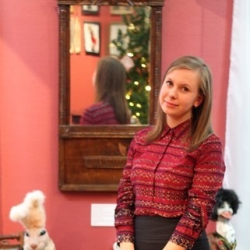Просмотр содержимого документа
«Контрольная работа по английскому языку 7 класс раздел 3»
1. LISTENING Complete the sentences
| Paul David says he is a … teacher. |
|
| language | science | popular |
| Students … come to the International Language School for two weeks. |
|
| sometimes | always | often but not always |
| At the International Language School students have classes … |
|
| in the evening | in the morning | in the morning and in the evening |
| Paul’s student from China … |
|
| are his favourite students | b) know English better than Paul’s students from other countries | read poems every day |
2. READING
The first people in Australia were the Aborigines, who came to this land more than 40,000 years ago. Chinese sailors visited the place 2,500 years ago, and later, in the 17th century the first Europeans arrived. One of them was the British sailor Captain James Cook who landed on the east coast and said that Australia now belonged to Britain. For the Aborigines it was the beginning of a terrible time.
Britain soon began to send convicts1 to the new country. In 1787, eleven ships left England for Australia. They were carrying 772 convicts. Their life in Australia was very difficult. And the newcomers had to work a lot. They made the first roads and farms.
In the middle of the 19th century they found gold in Australia. Thousands of people came to the country from North America, Britain and China. Cities began growing fast, there appeared new roads and railways. On 1 January 1901, the six Australian states became one country. At that time Britain was still very important for Australia. A lot of people left Great Britain for a new life in Australia, but thought of Britain as their “home”. After 1945 millions of people moved to Australia from all over the world. Now Australia is an important country in the east with a very unusual historical past.
Say in which of the following sentences the information is true, false or not stated.
Chinese sailors appeared in Australia 40 000 years ago.
Captain James Cook was the first to say that Australia was the British territory.
The first convicts came to Australia in the 18 th century.
People found gold in Australia at the beginning of the 19 th century.
Australia was the last continent that Europeans discovered.
3. Choose the right verb forms to complete the sentences.
1) In fact George (was/has been) to America several times. But I am not sure when he (has been/was) there.
2) Harry, where are the plums, please? — I (ate/have eaten) them all.
3) The other day we (have bought/bought) very fashionable clothes.
4) Christmas (came/has come). We are going to have a Christmas party tonight.
5) How much money (have you spent/did you spend) on these dictionaries? — Sorry, I don’t remember.
6) When (did they leave/have they left) for Japan? — Last Friday, I think.
7) She (had/has had) a very interesting meeting lately.
8) What books (have you found/did you find) in this old bookcase? Show them to me.
4. Complete the sentences. Use the words from the box, where necessary.
I will never give ____ the idea of visiting Australia.
The young girls are giving ____ sweets to the children who have come to the New Year party.
What country does China border ____in the north?
You shouldn’t laugh____these children.
The room was full ____school-leavers.
“Follow ____me,” he said.
5. Complete the sentences with the derivatives of the words on the right.
| 1) __________ he heard very loud music. 2) Jane has never read anything about the system of __________ in Australia. 3) A yellow __________ desert was in front of them. 4) The Australian Aborigines paint their bodies and make them very __________ on special days. 5) In fact my visit to his family was rather __________ 6) A small __________ girl was standing near the cage and looking at the budgies. 7) There are a lot of modern tall __________ in Canberra. 8) The __________ coasts of southeas94ftraralia are always full of holidaymakers. | sudden educate tree colour pleasant love build sand |
| to border on a country |
|
| a chain of mountains |
|
| on the coast |
|
| to flow into the ocean |
|
| a perfect day |
|
| a beautiful plain |
|
| a green valley |
|
| a long branch |
|
| the Sahara Desert |
|
| to destroy a town |
|
| a disease of animal |
|
| an empty room |
|
| a bus journey |
|
| autumn leaves |
|
| a sudden idea |
|
| in the back of a car |
|
| full of happiness |
|
| to laugh loudly |
|
| your own home |
|
| a big surprise |
|

















